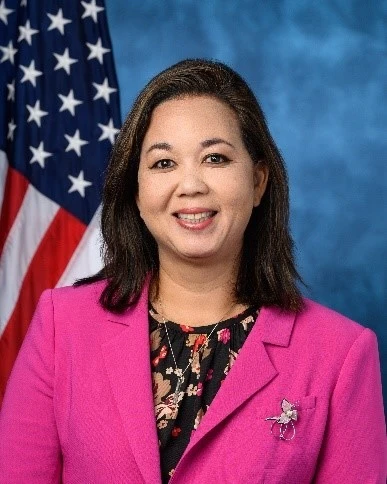Hawai‘i Rep. Ed Case was one of four Democrats to vote Thursday in support of a Republican bill requiring voters to provide proof of U.S. citizenship, while fellow Rep. Jill Tokuda voted against.
The U.S. House of Representatives passed the Safeguard American Voter Eligibility (SAVE) Act, a pillar of Republicans’ domestic policy intended to ensure that anyone voting in a federal election produce proof of citizenship.
As written, the SAVE Act requires voters to submit either a REAL ID-compliant form of identification, a valid U.S. passport, an official U.S. military identification card with record of service, or another valid government-issued photo identification card in order to be registered to vote.
The bill also includes some provisions for those without documentary proof of citizenship to register. For example, an applicant could submit other evidence to a local official along with an attestation of citizenship under penalty of perjury, whereupon that official could determine whether the applicant has sufficiently proved their citizenship.
Furthermore, the act requires each state to establish a program to enforce the bill’s other conditions within 30 days of the bill’s enactment. Such programs would use data by the Department of Homeland Security, Social Security Administration or other government agencies and databases to check the citizenship status of applicants.
Democrats and other opponents of the SAVE Act argue that its passage could lead to voter disenfranchisement and block citizens from exercising their rights if they don’t have readily available documentation.
Case, who represents Honolulu between Kapolei, East Honolulu and Wahiawā, disagreed. In comments sent via email to the Aloha State Daily, he said the bill “provides consistent national standards for what documentation is necessary to prove citizenship and the right to vote.
“Fears of voter suppression because of these standards are overstated and should not prevent reasonable citizen ID requirements, and voter suppression is in any event illegal,” Case concluded.
However, according to D.C. records, Case voted against the SAVE Act when it came before the House in 2024.
The other Democrats who voted for the bill were Henry Cuellar of Texas, Jared Golden of Maine and Marie Perez of Washington. Rep. Jill Tokuda, who represents all parts of Hawai‘i that Case does not, joined with other House Democrats to oppose the measure.
“I voted against the SAVE Act because it’s a blatant act of voter suppression—one of the most egregious in our lifetime," read a comment by Tokuda sent via email to the Aloha State Daily. "It targets women, our service members, and rural Americans by erecting needless barriers to the ballot box. This bill is not about election integrity. It’s about silencing millions of eligible voters and it undermines our democracy. Democracy thrives when more people participate, not fewer, and I will never support legislation that makes it harder for Americans to exercise their right to vote."

The final House vote on the SAVE Act came to 220-208 in favor of passage. The measure now goes before the Senate for further debate.





